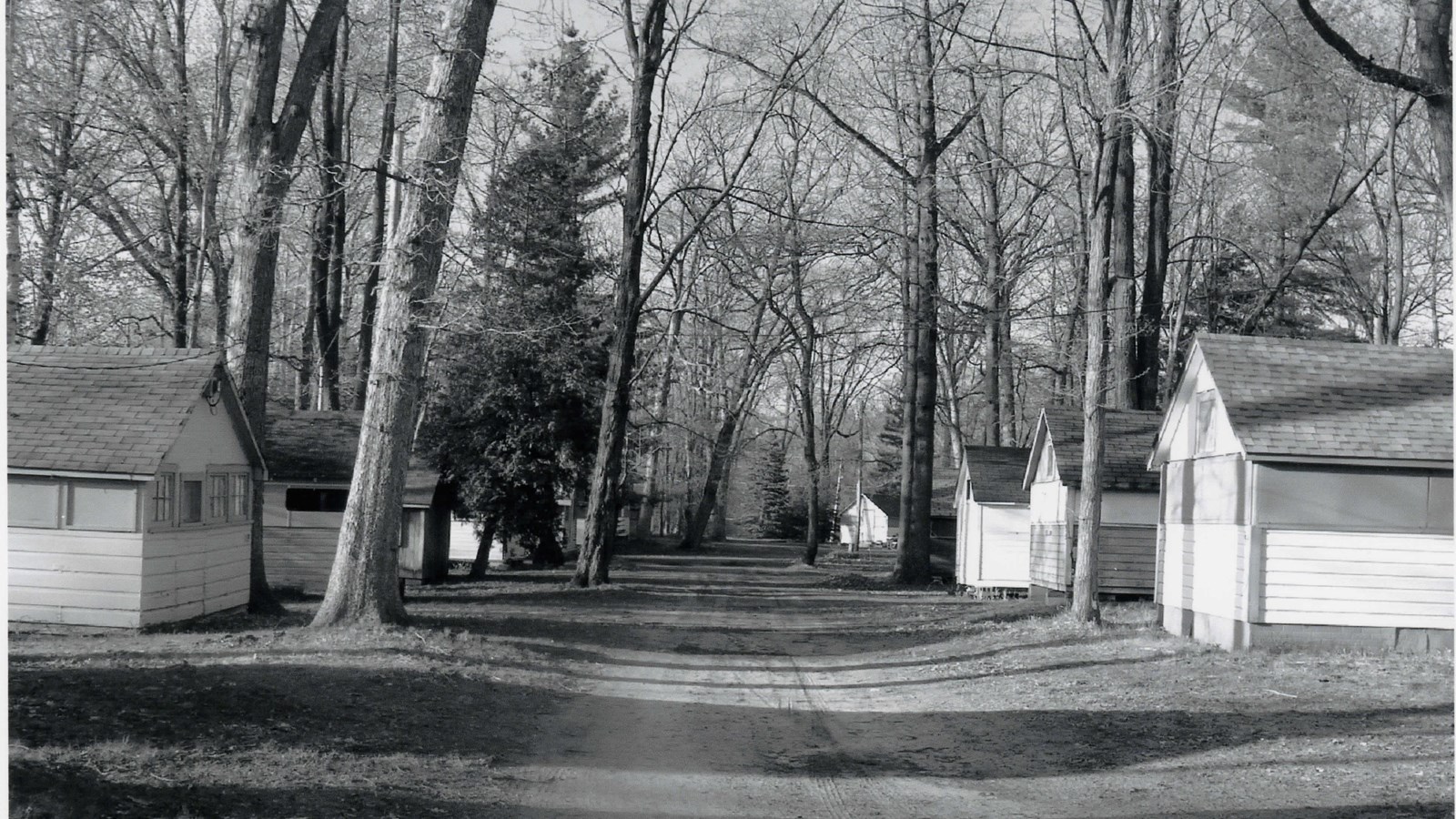Last updated: August 18, 2023
Place
Detroit Finnish Co-operative Summer Camp

Photograph by Harry Kansman, courtesy of the Michigan State Historic Preservation Office
Quick Facts
Location:
2524 Loon Lake Rd., Wixom, Michigan
Significance:
European, Social History
Designation:
Listed in the National Register - Reference number 06000723
The Detroit Finnish Co-operative Summer Camp in Wixom, Michigan was listed in the National Register of Historic Places in 2007. The camp is significant as the first, and is today, known as the only, summertime campground and social, cultural, and recreational place for people of Finnish ancestry in southeastern Michigan.
Finnish people began immigrating to Michigan in the 1850s, with many working in the state's northern copper mines. As the copper mining industry declined in the 1910s, many families moved to Detroit to take part in the city's burgeoning automobile industry. Many Finnish immigrants brought socialist and trade unionist sentiments to their new communities, and socialist organizations were central to many Finnish American communities; Detroit, in particular, was considered a stronghold for Finnish American socialism.
In 1926, the Detroit Finnish Educational Association, a group associated with Detroit's socialist organizations, opened the Detroit Finnish Co-operative Summer Camp in nearby Wixom, Michigan. Campers had to be of Finnish descent, able to speak Finnish, of good character, and to live in the Detroit area. At the camp, campers enjoyed educational courses taught in Finnish, Finnish plays, a traditional Finnish sauna, and softball.
The camp continues to fulfill its function as a space for cultural, social, and recreational activities for the Finnish population of southeast Michigan.
Finnish people began immigrating to Michigan in the 1850s, with many working in the state's northern copper mines. As the copper mining industry declined in the 1910s, many families moved to Detroit to take part in the city's burgeoning automobile industry. Many Finnish immigrants brought socialist and trade unionist sentiments to their new communities, and socialist organizations were central to many Finnish American communities; Detroit, in particular, was considered a stronghold for Finnish American socialism.
In 1926, the Detroit Finnish Educational Association, a group associated with Detroit's socialist organizations, opened the Detroit Finnish Co-operative Summer Camp in nearby Wixom, Michigan. Campers had to be of Finnish descent, able to speak Finnish, of good character, and to live in the Detroit area. At the camp, campers enjoyed educational courses taught in Finnish, Finnish plays, a traditional Finnish sauna, and softball.
The camp continues to fulfill its function as a space for cultural, social, and recreational activities for the Finnish population of southeast Michigan.
